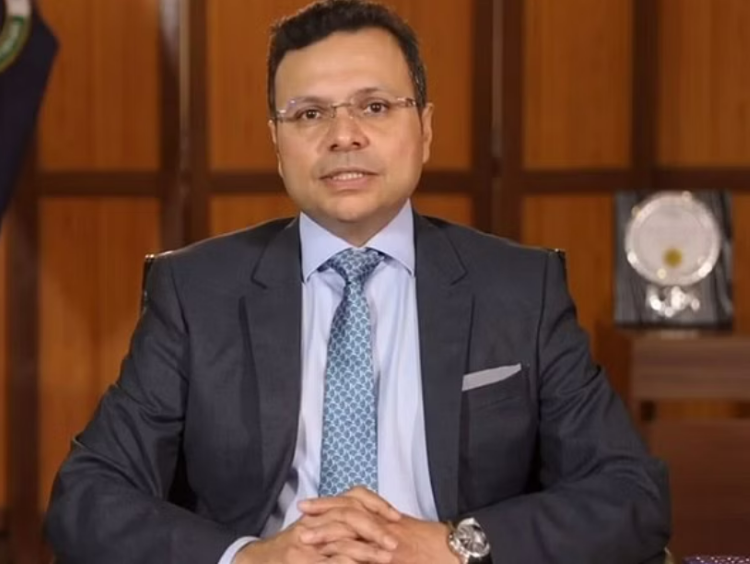
PHDCCI has highlighted the creation of demand or consumption, ease of doing business, reduction in cost of doing business, deployment of latest infrastructure, strengthening MSMEs, supporting the tourism sector, bringing agriculture and rural sectors to the forefront, ensuring vital health infrastructure, and a focus on education and skill development among the lists of recommendations.
PHDCCI stated that there is a need to refuel consumption, capacity utilisation, percolation of Ease of Doing Business at the factory level, rationalisation of cost of doing business, rationalisation of taxation, modern infrastructure, enhanced agricultural incomes, inclusive health infrastructure, quality education, and job creation in the economy. According to the PHDCCI, demand creation would have a multiplier effect on increased production capabilities, capacity expansion, private investment, and job creation.
It was stated that this would activate the Indian economy's overall virtuous circle of growth and development. The industry body stated that there was a need to increase the tax rebate benefits for consumption expenditure in order to boost economic consumption. Since many years, the tax rebate on the purchase of a self-occupied house has been Rs 2 lakh.
According to the industry body, this should be expanded to include a broader range of consumption expenditures such as the purchase of more than one house, a car, and other durables. It suggested that the consumption expenditure rebate be increased to Rs 5 lakh per year. This will not only increase aggregate demand in the economy, but will also attract private investment, increase firm capacity utilisation, and create massive job opportunities.
Reduced business costs and a level playing field in the country will boost the competitiveness of our industry and exporters while reducing imports of items where India has domestic capabilities, according to the report. According to the PHDCCI, the government should focus on lowering the cost of doing business, which includes capital costs, power costs, logistics costs, land costs and availability of land, labour costs, skilled labour availability, and compliance costs.
According to PHDCCI, modern infrastructure is one of the critical sectors driving the Indian economy's overall growth and development. Increased infrastructure spending will have a multiplier effect on the economy's aggregate demand. "Undoubtedly, robust infrastructure growth is a critical component in realising the vision of becoming Atmanirbhar Bharat and a developed economy by 2047," the industry body stated. At this point, the PHDCCI stated that infrastructure investment in the economy should not be less than 10% of GDP in order to achieve state-of-the-art infrastructure and become a developed economy by 2047.
Over the years, the micro, small, and medium enterprises (MSMEs) sector has emerged as a highly vibrant and dynamic sector of the Indian economy. A slew of reforms for the MSME sector, as well as changes to the new definition of MSMEs, will expand MSMEs' production capability frontiers. According to the PHDCCI, current banking norms result in high primary and collateral security demanded by banks for MSMEs, limiting their growth prospects. It stated that the government's priority should be the hassle-free disbursement of loans at low interest rates for businesses, as opposed to increased liquidity for MSMEs.
The industry body advocated for a tax cut for MSME firms that operate as sole proprietorships or partnerships. In many countries, including India, the tourism sector is a major driver of economic growth and a significant source of foreign exchange earnings. According to the PHDCCI, the development of tourism infrastructure is critical and should be prioritised in order to provide tourists with a better experience, facilities, and safety, thereby increasing job creation in the country and facilitating the growth of MSMEs.
According to the PHDCCI, more reforms in rural infrastructure logistics and a cold chain are needed to help increase the level of food-processing industry and rural entrepreneurship. It also stated that increased public investments in agricultural infrastructure would attract private investments in cold storage, warehousing, and the supply chain of agricultural produce, reducing food waste and bringing it to urban citizens at reasonable prices. It will also increase agriculturists' returns.
According to the PHDCCI, India's labour force is also distinguished by a high proportion of employment in agriculture and the informal sector, with nearly half of the country's workforce classified as working poor. The industry body stated that there is an urgent need to create a highly skilled talent base and to ensure the formation of a strong human capital base ready to serve the nation and engage with the world from a position of strength and valour at this time.
















